Photos: Giant Spiral Grows Out of Egypt's Desert
desert-breath
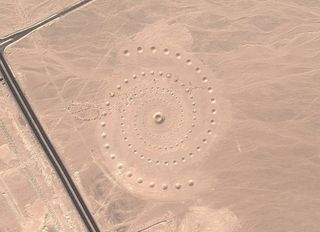
Danae Stratou, Alexandra Stratou and Stella Constantinides worked as a team to design and build the enormous 1,076 square foot (100 square meters) piece of artwork — called Desert Breath — to celebrate "the desert as a state of mind, a landscape of the mind," as stated on the artists' website.
Baffling Tourists
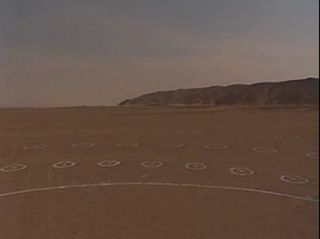
The art installation lies in the desolate reaches of the Egyptian desert, just a short distance from the shores of the Red Sea. And it's been baffling tourists and armchair travelers since it was constructed in March 1997.
Constructing a spiral
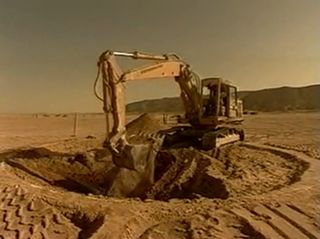
Here, a look at the construction of Desert Breath. "The project is rooted in our common desire to work in the desert. In our mind’s eye the desert was a place where one experiences infinity. We were addressing the desert as a state of mind, a landscape of the mind," the artists say on their website.
Making Cones
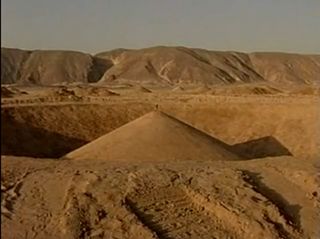
One of the 89 cones that ultimately makes up Desert Breath, which as a whole spans 1 million square feet (100,000 square meters).
Lots of sand
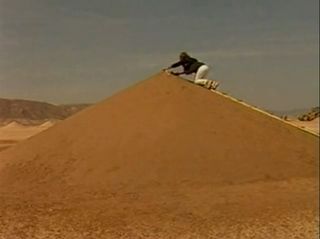
To create the precise positive and negative conical volumes, the artists had to displace about 280,000 cubic feet (8,000 cubic meters) of sand.
Desert depressions
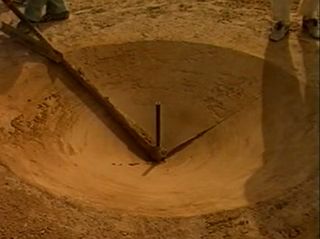
The cones as well as the depressions around them had to be carefully constructed.
Disappearing lake
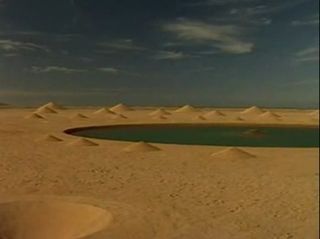
Constructed as two interlocking spirals — one with vertical cones, the other with conical depressions in the desert floor — Desert Breath was originally designed with a small lake at its center, but recent images on Google Maps show that the lake has emptied.
Sign up for the Live Science daily newsletter now
Get the world’s most fascinating discoveries delivered straight to your inbox.
A Physical Experience
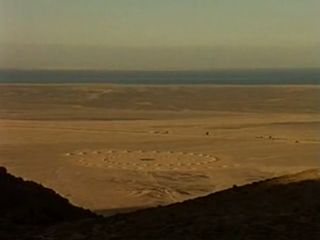
The creators of Desert Breath have no political or cult-like aspirations, however: "Located … at the point where the immensity of the sea meets the immensity of the desert, the work functions on two different levels in terms of viewpoint: from above as a visual image, and from the ground, walking the spiral pathway, a physical experience."
pentagram
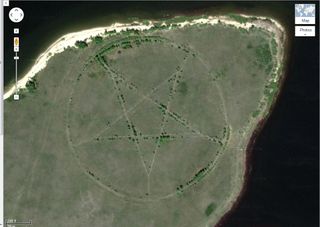
The art piece joins other mysterious images and environmental artworks that fascinate viewers on Google Earth, Google Maps and other online platforms. For example, the wind-blown steppes of Kazakhstan are home to a large pentagram etched into the Earth's surface on the shores of a desolate lake.
scientology-bunker
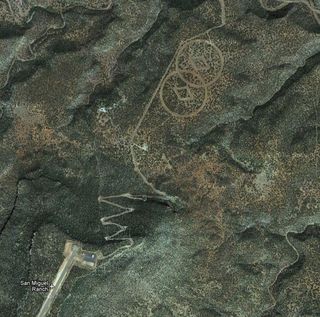
And etched onto the desert floor of New Mexico are two large diamonds surrounded by a pair of overlapping circles. This is reportedly the site of a hidden bunker belonging to the Church of Scientology, according to the author of a book on the religious group.
Most Popular

